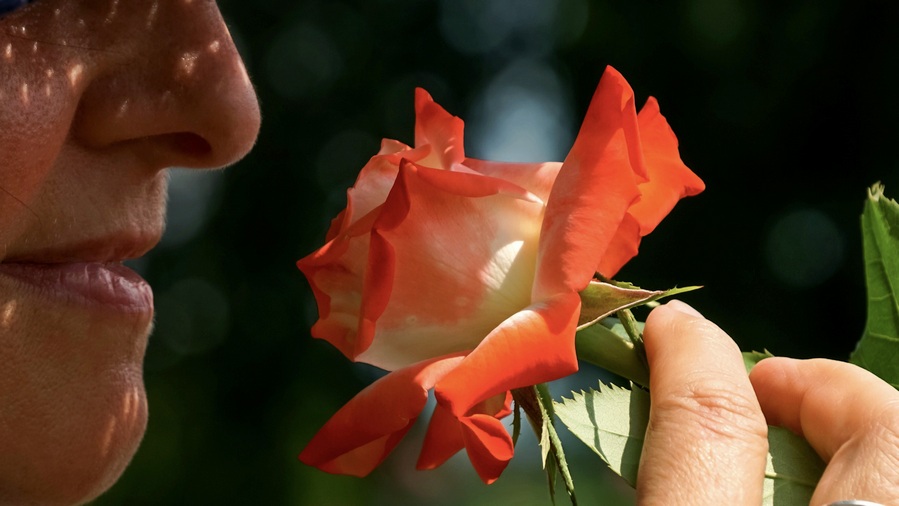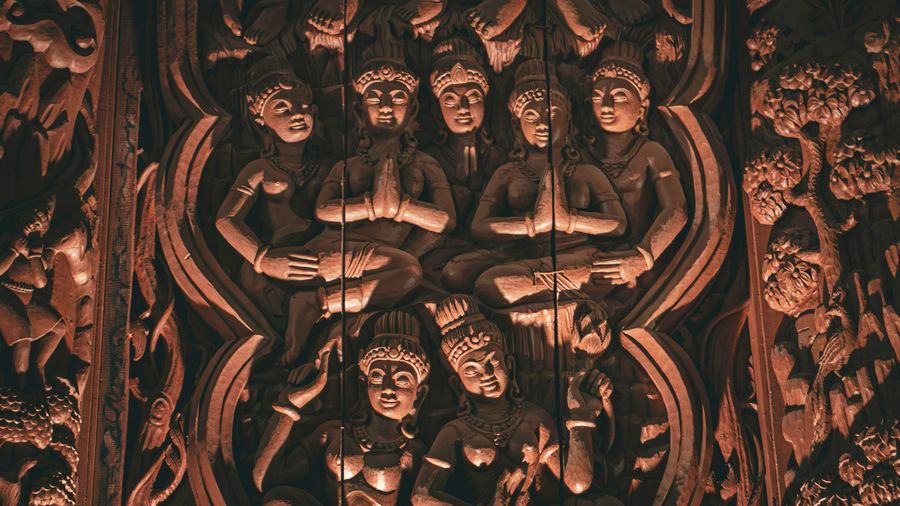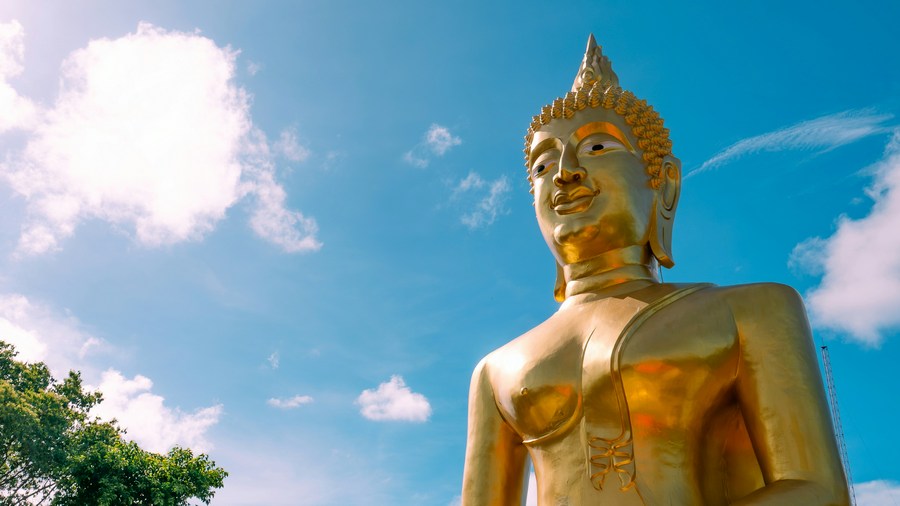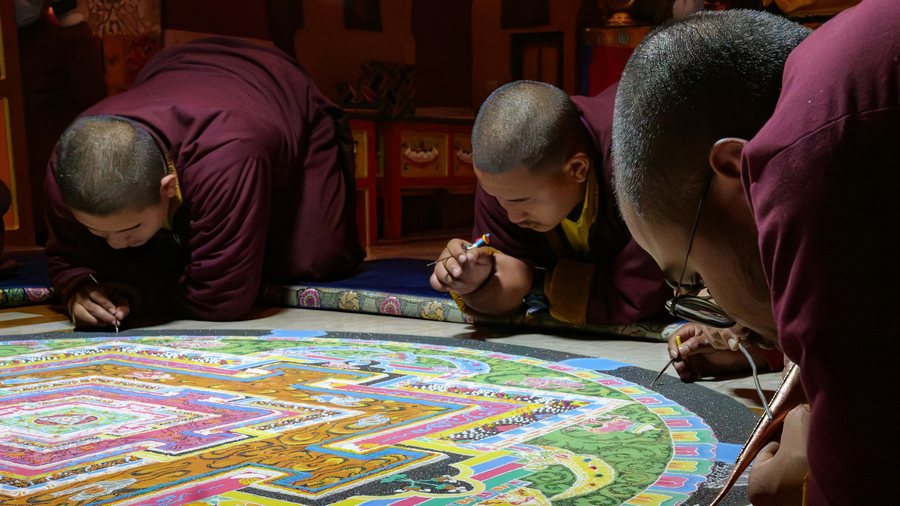Near Sāvatthī. Then Ven. Migajāla went to the Blessed One and on arrival, having bowed down to him, sat to one side. As he was sitting there he said to the Blessed One: “‘A person who is living alone. A person who is living alone,’ thus it is said. To what extent, lord, is one a person who is living alone, and to what extent is one a person who is living with a companion?”
“Migajāla, there are forms cognizable via the eye—agreeable, pleasing, charming, endearing, enticing, linked to sensual desire—and a monk relishes them, welcomes them, & remains fastened to them. As he relishes them, welcomes them, & remains fastened to them, delight arises. There being delight, he is impassioned. Being impassioned, he is fettered. A monk joined with the fetter of delight is said to be a person who is living with a companion.
“There are sounds cognizable via the ear… aromas cognizable via the nose… flavors cognizable via the tongue… tactile sensations cognizable via the body… ideas cognizable via the intellect—agreeable, pleasing, charming, endearing, enticing, linked to sensual desire—and a monk relishes them, welcomes them, & remains fastened to them. As he relishes them, welcomes them, & remains fastened to them, delight arises. There being delight, he is impassioned. Being impassioned, he is fettered. A monk joined with the fetter of delight is said to be a person who is living with a companion.
“A person living in this way—even if he frequents isolated forest & wilderness dwellings, with an unpopulated atmosphere, lying far from humanity, appropriate for seclusion—is still said to be living with a companion. Why is that? Because the craving that is his companion has not been abandoned by him. Thus he is said to be a person who is living with a companion.
“Now, there are forms cognizable via the eye—agreeable, pleasing, charming, endearing, enticing, linked to sensual desire—and a monk does not relish them, welcome them, or remain fastened to them. As he doesn’t relish them, welcome them, or remain fastened to them, delight ceases. There being no delight, he is not impassioned. Being not impassioned, he is not fettered. A monk disjoined from the fetter of delight is said to be a person who is living alone.
“There are sounds cognizable via the ear… aromas cognizable via the nose… flavors cognizable via the tongue… tactile sensations cognizable via the body… ideas cognizable via the intellect—agreeable, pleasing, charming, endearing, enticing, linked to sensual desire—and a monk does not relish them, welcome them, or remain fastened to them. As he doesn’t relish them, welcome them, or remain fastened to them, delight ceases. There being no delight, he is not impassioned. Being not impassioned, he is not fettered. A monk disjoined from the fetter of delight is said to be a person who is living alone.
“A person living in this way—even if he lives near a village, associating with monks & nuns, with male & female lay followers, with kings & royal ministers, with sectarians & their disciples—is still said to be living alone. A person living alone is said to be a monk. Why is that? Because the craving that is his companion has been abandoned by him. Thus he is said to be a person who is living alone.”
Read this translation of Saṁyutta Nikāya 35.63 Migajāla Sutta. To Migajāla by Bhikkhu Ṭhanissaro on DhammaTalks.org. Or read a different translation on SuttaCentral.net. Or listen on SC-Voice.net. Or explore the Pali on DigitalPaliReader.online.
Or read a translation in Deutsch, বাংলা, Español, Bahasa Indonesia, 日本語, မြန်မာဘာသာ, Norsk, Português, Русский, සිංහල, ไทย, Tiếng Việt, or 汉语. Learn how to find your language.































